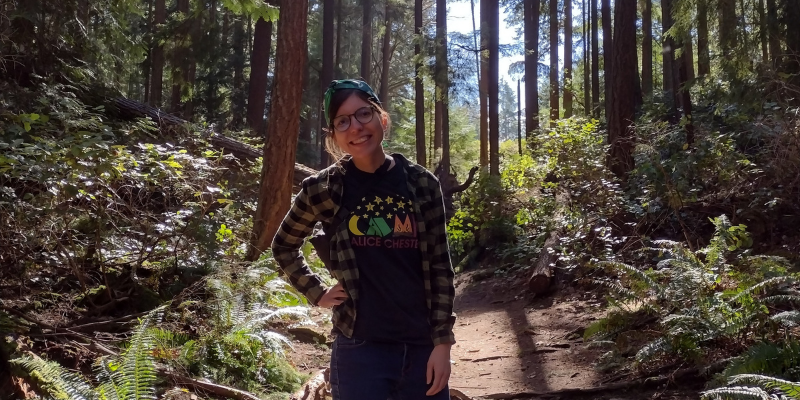Omit to Commit is all about the resources needed to opt into (and out of) behaviors, such as time, traditions (individual or group behaviors), trust, and treasures. By regularly making and breaking habits, life becomes more fulfilling and satisfying. I’m drafting a book called Omit to Commit, and in 2023, I’m posting research on the 20th of every month.
I haven’t done much research for Omit to Commit this month. But I have seen some examples in the real world, in my and others’ lives. Here are some exploratory ideas on the binary that Omit to Commit may suggest, especially related to nutrition and morality.
In the real world, there is no “arrival.”
Seldom is life a straightforward trajectory. If you omit something, the other end of the spectrum isn’t simply waiting for you. You have to decide what, who, or where it is you want on the “other” side. That’s the myth of arrival talking. You will never “get there” simply by omitting. We are human beings and make mistakes. And, as I’ve learned, you’ll still carry all your experiences (including baggage) when you “arrive.” Arrival isn’t the answer to finding meaning or being okay, it’s simply living.
And yet there is still something to be said about gains and losses through omission. One of my friends gave up carbs for a few months. Not only did she lose weight, she gained confidence. But that simplifies things: It wasn’t a simple omission. What else did she adjust? How much time and energy did she put into herself versus work, family? Diet is so dependent on resources. Self-esteem is even trickier. (I am grateful for a new movement of inherent worth, though.)
As I made my proats (protein oats) this morning, thickened with vegan chocolate banana protein powder, I also considered other parallels of emotions to physical strength through abstinence. My grandmother was an excellent baker, and for most of my life, I said, “no” to pie. This was due in part to my own mother, my grandma’s daughter, also not having a slice. I convinced myself I didn’t like the sweet treat, when in reality, I equated carbs with evil. As if this sugary thing contained more than fat and sugar but pain or vileness. Or worse, that gaining weight was something fearful.
What I gained from those missing calories? Not much. But what I remember from when I ENJOYED some sweetness? So much more. Hence, when I did tuck in for a (teeny) slice, Grandma and I shared something. Twinkling of eyes. An act of service, allowing her to show her love. And just soaking it all in: Lemon meringue, somehow fluffy, tangy, and smooth, all at once.
The older I get, the more balanced my diet becomes. Including little slivers of pie, once and a while. And while my friend has enjoyed her body’s response to the lack, I hope this intense omission is temporary. Because life should be enjoyed, even if it looks differently.
How do people sustain habits of omission?
Part of the problem of diets is that it moralizes foods over others, when in reality, they are all energy. Certainly, some items are more nutrient-dense than others, but we need that fuel to survive. In some diets, food is capitalized and categorized by points! As if financial disparities aren’t enough.
Omissions also consider ethics, whether it’s for nutrition or something else. Veganism is a great example. Plants-based living can be a response to one’s own pathos, such as not killing animals. For others, the reasons to not eat animal products could be environmental impact. Not all herbivores abstain because of moral reasons, but our behaviors are often dictated by what we perceive as right.
I also think there’s moral ambiguity here, too, often based on environment. Where one spends lots of time (and therefore energy and funds) often dictates behaviors, so it’s not surprising that habits can arise. But how often are mutual ideologies formed, too?
For example, when I moved to Colorado 2 years ago, I lived with 2 vegans. And while I am seldom there, due to various dog-sitting gigs, I have found a predisposition to plants-based living. Certainly, the time it takes to find protein sources is difficult, but I am gifted with adequate resources (and pathos) to continue following this path. When I visit my home-state of Wisconsin, it is a little more difficult to find such alternatives.
Who you surround yourself with is key to maintaining or withholding habits. Community supports not only behavior but feelings surrounding these often counterculture ideas. If I’ve learned anything in my journey to physical health, it’s that I don’t have to do it alone. But it’s the little reinforcements that make the difference, from watching dogs with parent(s) who prefer plants-based living, to attending animal rights events, to well-labeled menus, to a giant zucchini from a temporary neighbor, thanks to a long-term dog-sitting gig.
So I ask you, what, who, or where can support your changing habits? Feel free to let me know here or by filling out my habits form. Also, what should I write about next time? I’ll be in grad school, so my time will be spent at school and work, but I aim to maintain this book research habit of writing on the 20th of every month!
